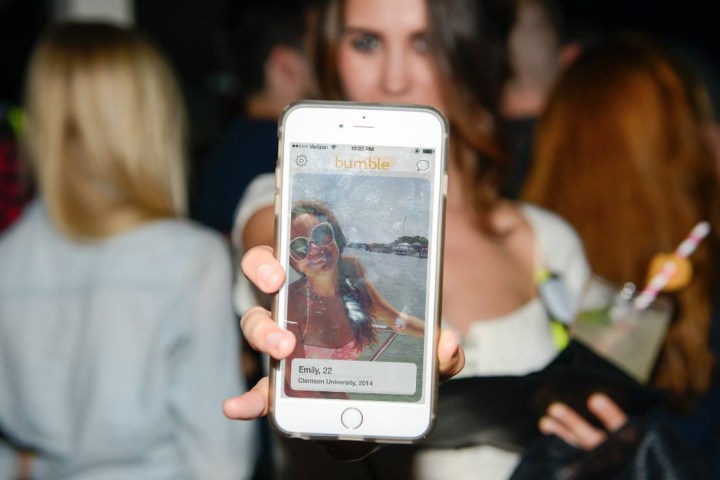
On Thursday, the popular dating app unveiled Bumble Photo Verification, which promises to “put a much needed end to fake users once and for all.”
The first app in the U.S. to come out with such a tool (though London-based Badoo came out with a similar concept earlier this year), Bumble’s photo verification technology requires users to take a selfie to prove their identity. That way, you’re not in danger of matching with someone who’s using, er, false advertising techniques.
Over the course of the next couple weeks, Bumble will roll out the feature for all users, and from that point on, new swipers will be asked to verify their identity before they start looking for — well, hopefully, love. To do so, you’ll simply have to tap the verify button in your badge, whereupon you’ll be prompted to take a selfie to be verified by Bumble administrators. Once a member of the Bumble team has reviewed your photo (which should happen in a matter of minutes), you’ll receive either confirmation or rejection of your verification.
If, for some reason, your profile has been reported as duplicitous and your verification is rejected, your profile will be turned off, rendering you undiscoverable. But for most people, this shouldn’t be an issue — you’ll simply receive word of your verification, and proceed as normal.
“The whole process is completely private between you and the moderator,” Bumble founder Whitney Wolfe told Select All. “Your photo will never be posted publicly and won’t be stored.” And ultimately, the point is to “provide the safest possible experience for connecting with people online.”
Concluded Wolfe, “I’d rather have fewer users and be able to provide a safe and true experience for them.”
Editors' Recommendations
- HMD Global wants you to keep your new Nokia phone and save the planet
- YouTube removes verification from channels, faces backlash, reverifies everyone


